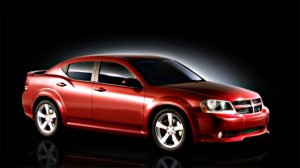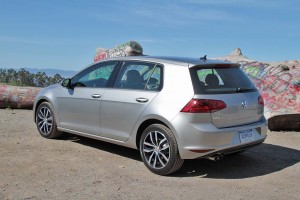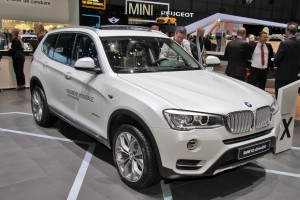© 2015 TheDetroitBureau.com
German authorities now say 2.8 million Volkswagen diesel vehicles sold in that country “are affected” by the maker’s rigging of emissions tests. But VW may not be the only maker implicated. The suspect turbodiesel engine used by Volkswagen apparently also was sold to several other manufacturers, including Chrysler and Mitsubishi for use in some of their European models.
Regulators there and in the U.S. are planning to expand random testing to include not just VW models but diesel vehicles sold by other manufacturers. Several reports from Europe indicate that some Daimler AG and BMW models might also exceed emissions standards, though it is unclear if that implies any intentional efforts to game the testing process.
For their part, the two makers insist they have followed the letter of the law, both in Europe and in other markets including the United States.
“We categorically deny the accusation of manipulating emission tests regarding our vehicles,” said Daimler AG, parent of the Mercedes-Benz and Smart brands, in a statement. “A defeat device, a function which illegitimately reduces emissions during testing, has never been and will never be used at Daimler. This holds true for both diesel and petrol engines. Our engines meet and adhere to every legal requirement.”
(New VW CEO Mueller faces plenty of near- and long-term challenges. Click Herefor more.)
VW’s admission that it installed software, known as a “defeat device” in 11 million of its diesel vehicles has set off a frenzy of concern around the world. Regulators in markets as far flung as the European Union and South Korea have said they will begin investigating the problem.
Italian authorities plan to randomly sample the missions of 1,000 diesel vehicles of various makes on the road to see if they comply with regional standards. The U.S. Environmental Protection Agency, which was first to discover and disclose VW’s cheating, also intends to test diesel vehicles.
In the U.S., at least, it now appears that 482,000 vehicles equipped with Volkswagen’s 2.0-liter diesel will be recalled because they can emit up to 40 times the permissible level of noxious exhaust gases when not being tested. What has been uncertain is whether the software actually was engaged in other markets.
“It’s now clear that vehicles in Germany are affected by these manipulations. Based on our current knowledge they are vehicles with 2.0 litre and 1.6 litre diesel engines,” German Transport Minister Alexander Dobrindt told the country’s parliament on Friday.
(Is your diesel dirty? Click Here for that and other questions about the VW scandal.)
The EA 189 engine was used in a variety of models through both the Volkswagen and Audi brands in the U.S. But the 2.0-liter package, as well as a 1.6-liter variant, also went into models sold by other Volkswagen AG brands, such as the Seat Leon and Toledo models.
Meanwhile, VW supplied the engines to at least two other manufacturers, TheDetroitBureau.com has learned, including Chrysler and Mitsubishi, which used them for models sold in the diesel-centric European market. The American maker went outside because, prior to its 2009 tie-up with Italy’s Fiat, it didn’t have a small diesel of its own.
The engines supplied by Volkswagen were apparently used in the European versions of such models as the Chrysler Sebring and Jeep Compass, as well as the Dodge Avenger introduced at the 2006 Paris Motor Show.
(For more on how the VW scandal will affect U.S. diesel sales, Click Here.)
It is unclear if what was then known as Chrysler Corp. also used Volkswagen-supplied engine control systems and, if so, whether they contained the rigged software.
Asked for details, a Chrysler spokesman declined comment. An insider reached by TheDetroitBureau.com added that as so many engineers and executives have left the company since its 2009 bankruptcy it could be difficult to track those with any knowledge of the diesel program.
What is now Fiat Chrysler now has a number of its own diesel engines, including a larger six-cylinder version that it offers in the popular EcoDiesel version of its big Ram pickup.
(Henny Hemmes contributed to this report.)




I would think that government authorities would normally check to see if the emissions devices function as intended on all models not just in emissions tests. State inspections use to measure the vehicle emissions as a requirement.
I have had some interesting conversations with auto engineers in Europe regarding the VW diesel emissions saga. They provided some useful information on the subject.
VW has so far only admitted to having software code that is capable of detecting if an emissions test is likely being conducted. According to EU and apparently U.S. emissions laws having such software is defined as a “defeat device” because authorities presume that the purpose of such software is to alter the engine operation to conform with the emissions requirements during testing when in fact the software may just be recording the date and engine parameters when the test was conducted. Regardless of the intent, this type of detection code is illegal so the affected vehicles will need new software without the detection code.
The number of EA 189 engines involved can be large but with the many variations and evolutions of this specific diesel engine model along with evolution of emissions requirements, many of the engine models are believed to not have the detection software. The very latest VW diesels sold in Europe with the 289 series diesel engines are not included in the suspect engine group.
In regards to rigging the test, VW has not admitted that any rigging occurred or that any of the vehicles fail to meet the required emissions. The bantered about “up to 40 times more emissions than allowed” assumes that some emissions control was disabled but in fact that has not yet even been established. The exaggerations, mistakes and false conclusions on this matter by some in the media and elsewhere are staggering. The German MoT has also assumed that all EA 189 engines “are affected” when this is untrue as there are many variations of the EA 189 engines with completely different ECMs and software.
VW most definitely needs to be punished but it appears the hyperbole is far greater than the actual problem if the majority of diesel powered vehicles meet all emissions requirements and only require new software. The small quantity of VW diesels sold in CA is insignificant compared to the 11 million VW EA 189 engines sold worldwide since ~2007. It remains to be seen how many engines actually fail to meet the required applicable exhaust emissions.